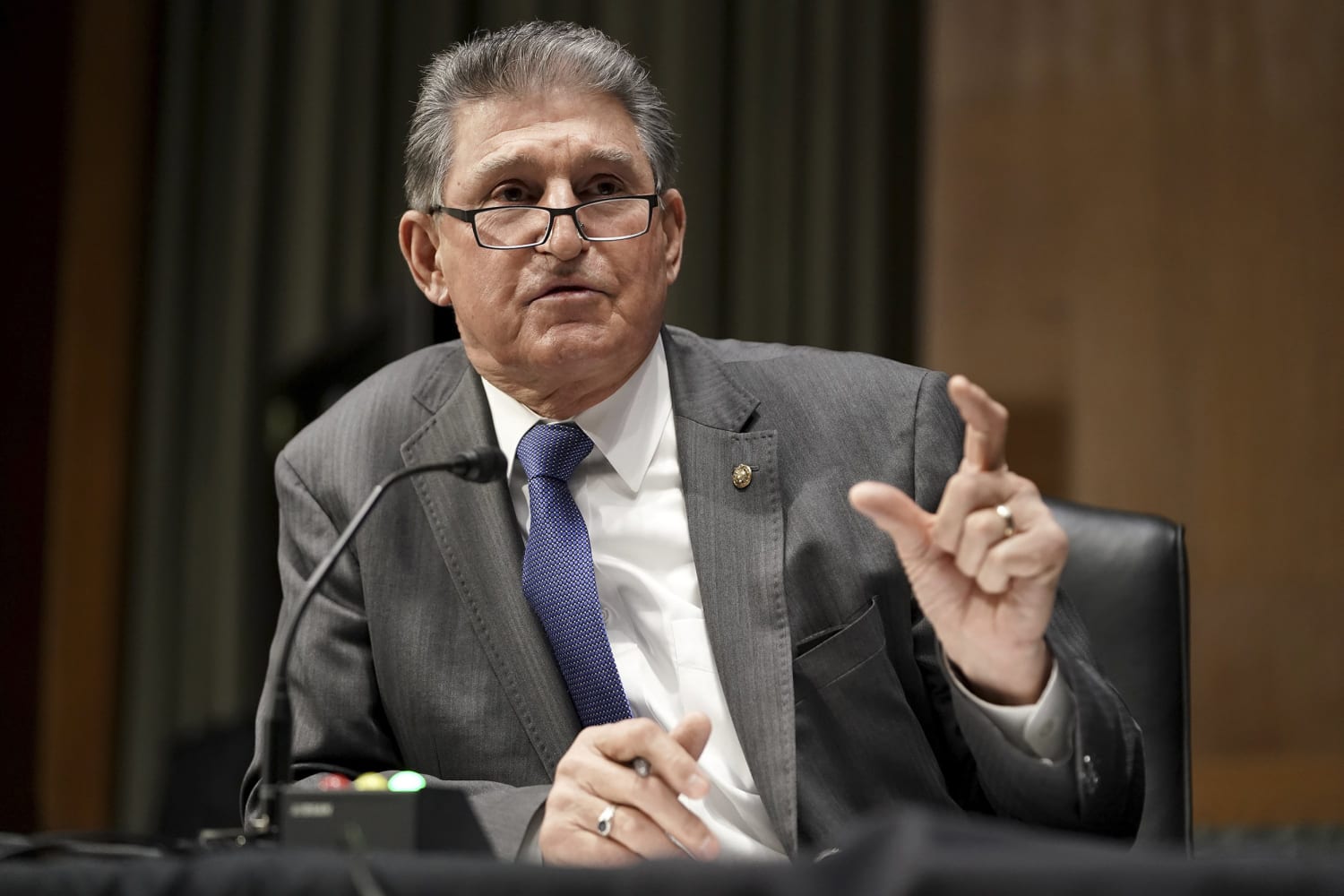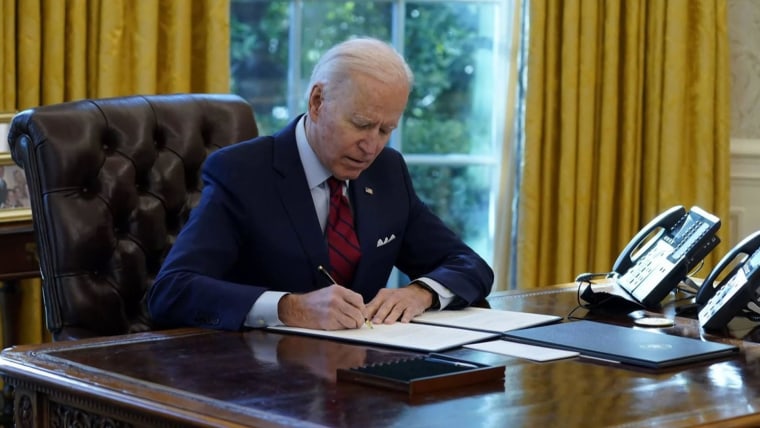WASHINGTON — Senate Democrats are divided on who should get the next round of stimulus payments, setting up a dispute as they try to approve $1,400 checks in the next Covid-19 relief package.
The most recent round of stimulus checks were cut off for people making more than $99,000 a year, or couples that made above $198,000. President Joe Biden recommended the same threshold in his $1.9 trillion Covid-19 relief package.
But some Democrats want to see that income cap lowered.
Sen. Joe Manchin, D-W.Va., wants to “ensure upper-income taxpayers are not eligible” for the checks, according to a nonbinding amendment he and several other Democrats plan to push during votes on budget documents.
But Manchin’s text doesn’t define “upper income” — a term that has been used by lawmakers to describe a wide range of wealth.
And even the co-sponsors of Manchin’s amendment disagree on what the threshold should be.
Manchin wants no checks for individuals making more than $75,000 per year, or couples making $150,000, his office said. He wants the amount to start phasing down at $50,000 per person, or $100,000 per couple.
Sen. Angus King, I-Maine, who backs Manchin’s amendment, said he doesn’t have a “detailed threshold in mind” but that he believes it should be “refined.”
“I do think it needs to be reduced from what the president has proposed,” King said.
The Manchin amendment passed by a vote of 99-1 as part of the “vote-a-rama” on Thursday, as part of the budget vehicle Democrats are using to pass a bill without requiring GOP support. But that was not an indicator of agreement — after all, senators define “upper-income” differently.
Apart from Manchin and King, the Democratic co-sponsors were Jon Tester of Montana, Kyrsten Sinema and Mark Kelly of Arizona, Maggie Hassan and Jeanne Shaheen of New Hampshire, John Hickenlooper of Colorado, and Mark Warner of Virginia.
The amendment comes after Biden told Democrats in a Wednesday call that he won’t compromise on the $1,400 amount for payments, because he’s “not going to start my administration by breaking a promise to the American people.” But he opened the door to adjusting the income levels.
“Maybe we can — I think we can better target that number. I’m OK with that,” he told Democrats, according to a source on the call.
Asked how he defines upper-income, Tester said: “I guess that beauty is in the eye of the beholder, it depends on who you want to talk to. But I think the point of the amendment is, it’s negotiable so we can try to get some folks on board.”
“Joe called me up on it, I said, ‘Joe, sounds reasonable.’ That’s the reason Joe gave me. And I agree,” Tester said.
But some top Democrats don’t want to lower the eligibility level for checks.
Senate Finance Chairman Ron Wyden, D-Ore., who will be a key figure in crafting the reconciliation legislation, told NBC News he’s “not for changing the threshold” because that would exclude many Americans who are expecting relief.
“The people who got two checks already are expecting a third on the basis of the pledges and what was said through the campaign,” he said Thursday. “They have bills piling up, and they have difficulty paying their car insurance.”
Senate Budget Chairman Bernie Sanders, I-Vt., who is shepherding the reconciliation process, said he will “insist” on a threshold of $75,000 per person and $150,000 per couple before it begins to phase down — the same eligibility as the last direct payment.
He said Democrats agree that Americans making more than that shouldn’t get payments.
“I don’t think there’s much argument — we don’t want to see people making $300,000 to $400,000 benefit from this,” he said.
Among the Democrats opposed a lower cutoff is Sen. Jon Ossoff of Georgia, who won a competitive Jan. 6 runoff after campaigning heavily on the stimulus checks.
“I’m advocating that we go big, and that we deliver as much direct relief to the people as we can,” Ossoff said Thursday.
Source: | This article originally belongs to Nbcnews.com
























